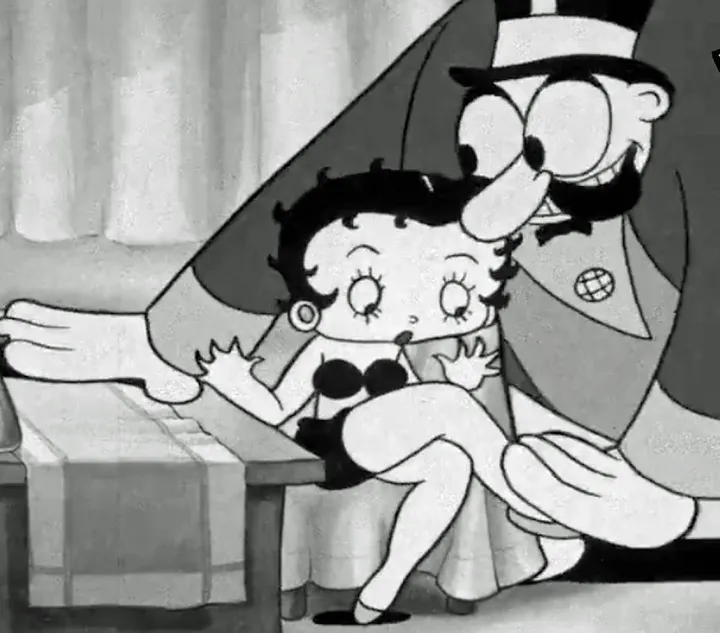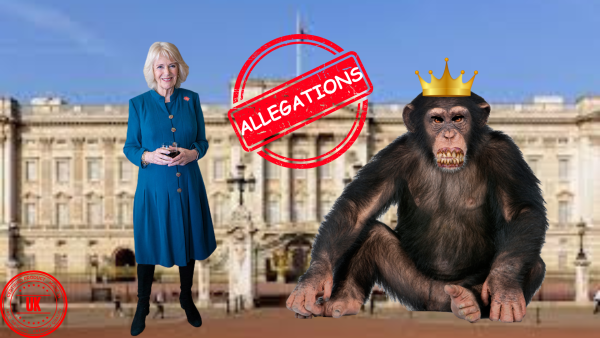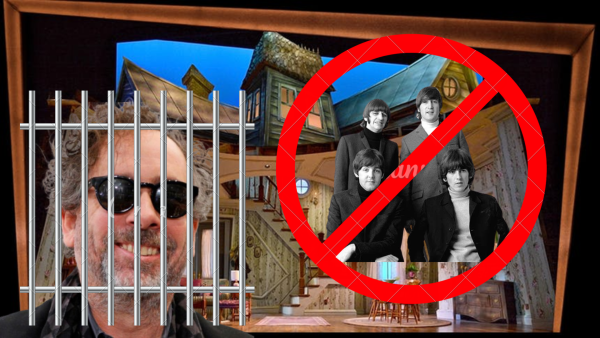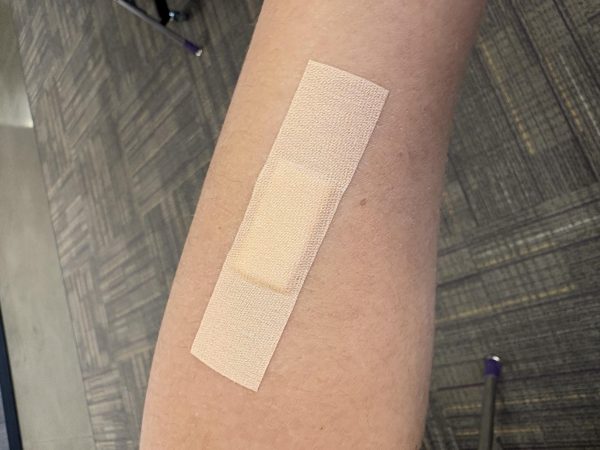Extra, extra! Battered woman makes a comeback!
Reporter’s note: This article addresses abuse, rape and sexual assault, all of which can be sensitive topics. Readers should continue at their own risk. While this is an uncomfortable topic, it is essential to recognize what needs to change, and we should criticize about our society. This article serves as a voice for those who can’t speak for themselves, and is a step towards trying to break down the film industry’s current standard of “normalcy.”
When Sixteen Candles dropped in theaters in 1984, it seems that it immediately became a pinnacle in the American film-making industry. The plot follows Samantha (Molly Ringwald) as she navigates her way through her 16th birthday. The movie focuses on Samantha’s struggles with family, relationships and virginity– all typical teenage issues that are resolved by the movie’s end.
However, this movie is not entirely what it seems. It is now harshly criticized for its misogynistic jokes, the racist portrayal of an Asian character, and one other “minor” thing: a rape scene.
High school senior and main antagonist Carolyn (Haviland Morris) throws a party at her boyfriend Jake’s (Michael Schoeffling) house while his parents are out of town. After a drunken argument with Jake, she passes out on his bed, and her (sober) boyfriend goes downstairs to find their friend, Farmer Ted (Anthony Michael Hall) trapped under a glass coffee table. He frees Ted and mixes drinks for the both of them as they discuss their escapades of the night. It is at this point that Jake remarks, “I’ve got Carolyn in the bedroom right now, passed out cold. I could violate her in 10 different ways if I wanted to.” To this, Ted replies, “What are you waiting for?”
After this, Jake and Ted make a trade; Ted gives Sam’s underwear to Jake in exchange for taking Carolyn home. But alas, Ted doesn’t just take Carolyn home. In the scenes that follow, directors lead viewers to believe that Ted and (passed-out, incoherent and intoxicated) Carolyn have “sex.”
Many brush off this scene as a reflection of the time. Because it was 1984, directors cannot be held accountable for this, right? Things have changed enough in the film industry that this lapse in judgment can still be ignored, right?
Wrong.
More often than not, Hollywood creates one of two situations when portraying abuse. The first is painting the abuser in such a light that their abuse is seen as love thinly veiled with possessiveness.The second is representing the victim in a way that makes their past irrelevant to who they are as a person. It completely dismisses the never-ending cycle of healing that real victims have to live through. With these characters in mind, there are myriad ways that Hollywood incorporates casual abuse into shows. This can include using abuse as a filler for time, using assault as the crux of a character’s development, or even romanticizing the dynamics of an abusive relationship. There are hundreds of other ways to go about it, and film directors and producers have been getting away with it for years in some of the world’s most popular TV series and movies.
Game of Thrones producers have been under fire numerous times for their casual use of rape to fill dead time in their shows. The first episode of the series introduces Daenerys Targaryen (Emilia Clark) as a young girl sold into a marriage with Khal Drogo (Jason Momoa) by her brothers. After their wedding, Targaryen is violently raped. She is shown sobbing throughout the scene as she strips while the sun sets behind her. This ends in about 2 minutes as the screen cuts to black at the beginning of her assault.
And producers did not stop there. Throughout eight seasons, the show contained over 50 scenes of violent assault of some kind, despite being harshly criticized by survivors of actual sexual assault. Some have defended the directors for being accurate to the 1996 book Game of Thrones by George R.R. Martin. And others feel that the scenes are justified because directors can do what they want, creatively.
Whether or not it is accurate to the book, the moral decision to fill dead time in a show with sexual assault is questionable at best. Victims of actual sexual assault spend years learning how to recooperate from their trauma. In contrast, women who are mercilessly assaulted in shows are never seen processing and healing from what has happened. Though almost every offender dies by the end of the series, death does not undo the past. People still have to process their experiences after the cause of their trauma dies.
Similar shows such as Scandal, American Horror Story, and Reign have all been criticized for the same thing.
Meanwhile, YOU, a Netflix Original series released in 2019, quickly gained popularity for its cunning main character, Joe Goldberg (Penn Badgley) and his obsessive love for Guinevere Beck (Elizabeth Lail). The first season follows Goldberg as he commits gruesome murders to ensure that he will carry out his ideal future with Beck. Of course, this plan goes down in flames once Beck finds a jar of teeth and a phone he stole from her in the ceiling tile of his bathroom.
By the end of season three, Goldberg has murdered about 11 people (that viewers know of) and abandoned his child. This is all so he could move to Paris in search of the woman who he was having an affair with during his previous marriage.
This show’s plot, while being part of the problem, is not the most alarming thing about the show itself.Rather, it is how the directors complicate Joe’s character so that viewers sympathize with him. The hurt child within Goldberg deserves sympathy, but not the adult man with the means to go to therapy, who chooses to murder people instead.
These are just a few of the hundreds of shows, skits and movies that Hollywood has produced and popularized because they are supposed to feel real. However, film producers have managed to glorify every feasible aspect of an abusive relationship, making it seem beautiful or like true love.
Unfortunately, the film industry’s glorification of assault, manipulation and abuse has leaked into people’s real lives, especially those working in the industry itself.
Since the early 1920s, speculation about misconduct within the industry has been common due to surges in reports about well-known directors, actors and actresses behaving inappropriately towards their co-workers, especially minors.
In 1977, Roman Polanski, a Polish-French film director, fled the country after being charged with sexual abuse against a minor. In 2003 Jeffrey Jones, a popular 1990s actor, was arrested for possession of child pornography and for hiring a 14-year-old boy to pose for suggestive photos. In 2017, the late talent agent and actor Jeffrey Epstein was accused of sexual assault by over 80 women.
In many Hollywood productions, there is a clear reflection of an industry that is generally patriarchal, ignorant, and inhumane. There are undeniable similarities between the kinds of abuse that take place on-screen and off-screen in the film industry. The fact that the abusers are rarely held accountable is a combination of horrifying and enraging.
With this in mind, the question must be asked: Why is it OK for famous people to take advantage of abusive situations? People regularly suffer from abuse, but Hollywood turns it into something to overlook — convincing the world to see it as nothing.






